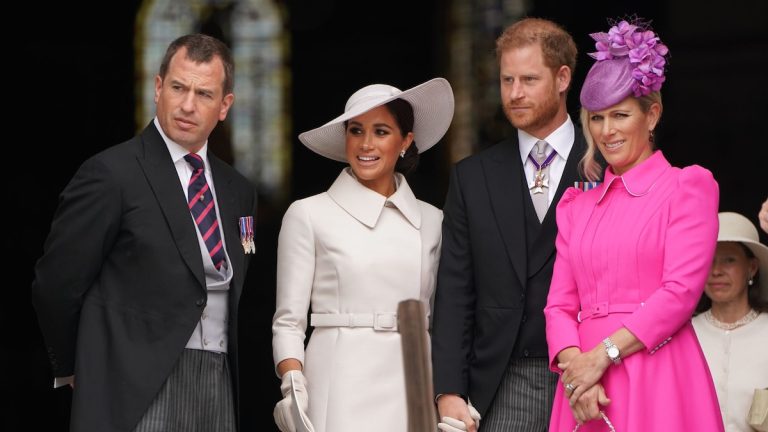After the change of rule and government, the finances, taxes and personal assets of the members of the British Royal House are being analyzed and raising one question after another. A few weeks ago a journalistic investigation into the extent of the businesses of the Duchies of Lancaster and Cornwall, the personal finances of Charles III and Prince William respectively, sparked a debate over whether they could operate commercially while exempt from paying tax. Those are businesses. Prince Andrew’s “pocket” later made headlines, as he surprised the palace authorities by presenting financial solvency from sources he could not afford to continue living in the thirty-room house he rented and owned. The sovereign, a king who, on the other hand, appears to have declared monetary war against him. In this situation, it is the turn of Anne of England and more specifically her children, Peter Phillips and Zara Tyndall, who may have to spend a million dollars.
The British Chancellor of the Exchequer, Rachel Reeves, is unveiling her budget plans and announcing tax hikes with which she wants to raise 40 billion pounds (around 50 billion euros) at a time when the British government’s public accounts have an even bigger hole. 22,000 million pounds (about 26,000 million euros) according to the Prime Minister, Keir Starmer, and which he blamed on mismanagement by the Conservatives. Among other measures, Labor has announced changes to inheritance tax, which are not a problem for Charles III or Prince William, who are exempt from paying the tax, but for other members of his family, particularly Princess Anne’s descendants, siblings Peter and Zara Phillips.
As stated Daily MailPrincess Anne’s Gatcombe Park estate is thought to be subject to new inheritance tax rules affecting farmland, and the residence is already a large expanse of land on which the main building has stood since the 18th century, which Princess Anne occupied. The mother, Elizabeth II, also gave it to her on the occasion of her first marriage to Captain Mark Phillips and two residences built for her children and grandchildren. According to calculations based on the purchase price, that property would be worth about six million pounds, more than seven million euros, and the 20 percent tax would affect all agricultural assets over one million pounds. The measure proposed by Labor is very controversial and not because it affects the descendants of Princess Anne, it feels betrayed by rural and agricultural communities who have been betrayed by this “tithe of the countryside”, while other analysts think that it endangers the environment and food. Security of the United Kingdom.
If the measure is approved, brothers Peter and Zara will face millions of dollars in taxes and it has made headlines in the UK because it is not common. Since 1993, the heir to the British throne has been exempt from inheritance tax and therefore succession passes “from king to king”. That is, the bulk of Isabel II’s fortune went directly to Charles III and not to her four children, since Princesses Anne, Andrew and Edward had to pay. This measure was taken so that the Windsors’ fortunes would not diminish with each new generation, arguing that if they were able to finance themselves through their own means, they would not have to resort to government funding. This “royal exemption” dictated by John Major’s government caused a decline in the popularity of the British royal family, who countered with Elizabeth II’s promise to dig into their pockets and voluntarily pay taxes. Charles III, as Prince of Wales, followed in her footsteps, even going so far as to make some of her accounts public, a measure that Prince William had already made clear he would not follow. The new heir simply reported that he had paid the appropriate voluntary tax, but did not tabulate the numbers.





